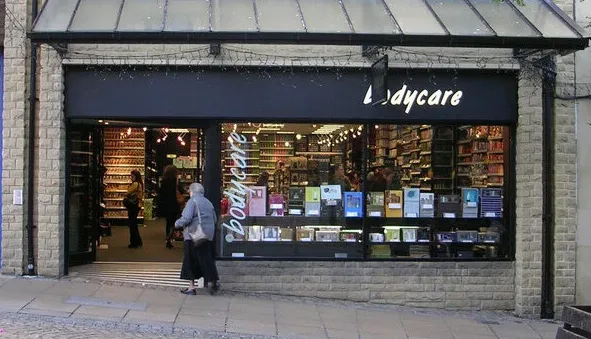Bodycare to close all remaining stores by Saturday as administrators fail to secure a buyer
The final chapter for Bodycare has been written. All 56 remaining stores of the health and beauty retailer are closing this week, with 444 jobs set to vanish after administrators failed to find a buyer.
The decision comes less than three weeks after the company, founded in Lancashire in 1970, entered administration. Once a familiar name on the high street with its brightly lit stores and bargain-packed displays, Bodycare has been declared “no longer viable to continue” due to stock shortages and soaring operating costs.
A spokesperson for the administrators said the closures would be completed by Saturday. “We will continue to provide all support to those impacted,” they added, noting that while several parties had shown interest in the Bodycare brand itself, “a sale of the stores is now unlikely.”
Nick Holloway, managing director at Interpath and joint administrator, said discussions on the future of the brand would continue, but confirmed the shops themselves had reached the end of the road. “We will continue to explore options for the company’s assets, including the Bodycare brand, and will provide further updates in due course,” he said.
The chain’s collapse has already had a devastating impact. More than 1,000 jobs were lost earlier this month when the business first fell into administration. This latest announcement brings the total number of redundancies far higher, closing the book on a retailer that once thrived on bargain perfumes, lip balms, nail kits, and even pyramid displays of washing-up liquid.
Bodycare had long struggled against rivals with deeper pockets and stronger digital presence. Marketing expert Catherine Shuttleworth pointed to “extremely strong competition” from Boots, Superdrug, supermarkets and the growing power of online sellers across social media platforms. “The reality is shoppers can seek value in this sector everywhere,” she said.
Embed from Getty ImagesRetail analyst Jonathan De Mello described Bodycare’s decline as inevitable, arguing the chain was trapped by its own model. “Bodycare’s low-margin value proposition meant it was reliant on high shopper volumes,” he said. “But those volumes were falling, given the more challenged locations they traded in and the proliferation of health and beauty competition over the years.”
Clive Black, head of consumer research at Shore Capital, said the company’s management team failed to adapt. “They could not cope with an evolving market, stronger competition and rising costs,” he said. “One’s heart has to go out to the good people at Bodycare who are losing their jobs, the suppliers missing payments, and the landlords losing rent. That is the vicious circle of business failure.”
The collapse mirrors a wider wave of turmoil on the British high street. Fashion retailer River Island recently confirmed it would close 33 stores after multi-million-pound losses, while Poundland narrowly avoided administration after a last-minute turnaround plan.
For Bodycare, though, the end has come swiftly. Founded in the early 1970s, its no-frills layout and bulk deals once attracted loyal customers. Its store windows became famous for towers of toilet rolls and cut-price toiletries stacked high. But in a retail world increasingly driven by online convenience and value-driven supermarket chains, the model could not survive.
The closures affect towns and cities across England, Scotland and Wales, including major sites in Manchester, Leeds, Leicester, Liverpool, Sheffield, Sunderland and Wolverhampton. Each store will close its doors by Saturday, marking the final disappearance of the once-popular brand from Britain’s high streets.
For staff and shoppers, it is a sobering end to a business that once promised affordability and accessibility in everyday beauty products. Now, Bodycare becomes the latest casualty of a retail landscape where heritage and nostalgia are rarely enough to survive.
